#the NYT is demented
Explore tagged Tumblr posts
Link
Take notes. The old Monstrosity is going to shove this plan down your American throats. I am always kicked out into the street for saying this stuff, but it happens to be the uncivil truth. Moderators, grow up. You have no idea what it feels like to get your kids out of this invented mess. I lost my family because the Monstrosity reigns, and 2025 will rip our voices from our throats. Just like a moderator on a binge. No voices means the United States of America is in a civil war. A resistance will now emerge. It will have no head leader because it would be easy for the Monstrosity to kill any leader It wants. 2025's problem is called Erasing Your Voice. Americans want It. The New York Times is cowardly. The High Executive Committee Of Tea and Crumpets Declares (existential) Going Forward Politely. If Americans think the Monstrosity reads 2,000 pages, then I am Maria of Romania. It's ignorant. It has one goal, and that is to break the United States of America, and you are fine with this game plan to break the United States of America down to the status of a mote of dust. Eyes. Ears. Mouth. But no. That us little people would have a voice is trampled at NYT. The Monstrosity wants revenge and It will get it. He seeks to take away our voices, and so does the New York Times. Americans cower and shiver. We are undone. Americans want a civil war. The New York Times refuses to allow diverse voices. It wants a fake compliance of voice. You will swallow 2025 whole but politely.
#tim barrrus#tim barrus New York Times#new york times#tim barrus Civil war#New York Times Irresponsible#Written by swine#resist#resistance#new york times opinion#tim barrus opinion#dissent#alternative voices of dissent#new your times uncompetant#new york times seeks silence#New York Times civility is more than one of yout stupid rules#the NYT is demented#Americans are cowardly#America shivers and weeps and does nothing
0 notes
Text

"Mr. Trump's election demonstrates how American tolerance for the unacceptable is nearly infinite. There are hundreds of absolutely mind-boggling things I could point to from the past decade...But three election in a row, Mr. Trump has been a viable Presidential candidate and our democracy has few guardrails to protect the country from the clear and present danger he and his political appointees will continue to confer upon us. Clearly, Mr. Trump is successful because of his faults, not despite them, because we do not live in a just world...And now Republicans will control the executive branch, the Senate and the House of Representatives. There will be few checks and balances...
...Mr. Trump's voters are granted a level of care and coddling that defies credulity and that is afforded to no other voting bloc. Many of them believe the most ludicrous things: babies being aborted after birth and children going to school as one gender and returning home surgically altered as another gender even though these things simply do not happen. Time and again, we hear the wild lies these voters believe and we act as if they are sharing the same reality as ours, as if they are making informed decisions about legitimate issues. We act as if they get to dictate the terms of political engagement on a foundation of fevered mendacity.
We must refuse to participate in a mass delusion. We must refuse to accept that the ignorance on display is a congenital condition rather than a choice. All of us should refuse to pretend that any of this is normal and that these voters are just woefully misunderstood and that if only the Democrats addressed their economic anxiety, they might vote differently. While they are numerous, that does not make them right.
These are adults, so let us treat them like adults. Let us acknowledge that they want to believe nonsense and conjecture. They want to believe anything that affirms their worldview. They want to celebrate a leader who allows them to nurture their basest beliefs about others. The biggest challenge of our lifetime will be figuring out how to combat the American willingness to embrace flagrant misinformation and bigotry.
As Mr. Trump assembles his cabinet of loyalists and outlines the alarming policies he means to enact, it's hard not to imagine the worst, not out of paranoia but as a means of preparation. The incoming President has clearly articulated that he may dismantle the Department of Education and appears to be giving the wealthiest man in the world unfettered access to the Oval Office. He plans to begin mass deportations immediately and has announced his pick of a Fox News host as the defense secretary -- the list goes on, each promise more appalling than the last.
We would like to believe that many of the ideas on Mr. Trump's demented wish list won't actually come to fruition and that our democracy can once more withstand the new President and the people with whom he surrounds himself. But that is just desperate, wishful thinking. As of yet, there is nothing that will break the iron grip Mr. Trump has on his base, and Vice President-elect JD Vance is young enough to carry the mantle going forward for political cycles to come.
Absolutely anything is possible, and we must acknowledge this, not out of surrender, but as a means of readying ourselves for the impossible fights ahead."
-- Roxane Gay, "Enough", The New York Times, November 17, 2024.
This is one of the best, most spot-on pieces about where we are and what we must prepare ourselves for in the aftermath of Donald Trump's re-election to the Presidency. These gift links will allow you to bypass the NYT paywall and read the entire article, and I urge you to share these links with as many people as you'd like.
#Presidential Election#Politics#Presidency#United States#America#Presidential Transition#Donald Trump#President Trump#President-elect Trump#Trump Administration#Trump Transition#MAGA Movement#Cult of Personality#Roxane Gay#New York Times#New York Times Opinion#ELECTIONS HAVE CONSEQUENCES#Consequences#This is your life
424 notes
·
View notes
Note
Thank you for your posts on the situation in Canada right now. Honestly it's been messing with my mental health to see the absolute radio silence from the (progressive! leftist! people I thought would care!) Americans I follow. I get that they have a lot on their plate but the silence has been seriously depressing. Seeing your posts get notes and get circulated helps my anxiety a bit, I just want Americans to care about this and be aware of it.
Oh, anon. I wish I could gather up you and all the existentially terrified Canadians in my notes and take everyone out for beers. The background anxiety is high, isn't it? There was a broadcast emergency alert in my city recently - it was an Amber alert - but all my groupchats and our local subreddit lit up with people saying their immediate reaction had been 'is it an invasion?' My 70-year-old aunt called me up recently to talk about whether she should get her PAL. It's bizarro world. It's messing with all of our heads.
That's exactly why I made this post. I thought maybe my American friends weren't saying anything to me about this situation because they didn't care, or felt too awkward to bring it up. Over the last week or so I've learned that actually, almost none of them have any idea. Their media is just straight up either not covering it or the reporting is egregiously skewed (LOOKIN AT YOU NYT!!). In a way, that does mean you can be heartened - your American mutuals actually would probably care very much if they had a meaningful way to sort out "51st State" 'jokes' from the fifty thousand other demented 'jokes' they're being bombarded with every week.
Americans also generally don't - and can't - understand the constant low-level hypervigilance that comes from living just across the world's longest undefended land border from the world's largest & wealthiest military. They have no idea what it's like to watch another country's every move and wonder about the ramifications to their own country. How could they? They're the country everyone else watches.
Anyways, all that to say. Keep talking about it. Don't assume Americans don't care, just assume they don't know. Stand firm that there is no room anywhere for the words "just a joke." Threatening another country's sovereignty even as a joke should actually be a massive political scandal all on its own - any country would be right to take it deadly serious for our own safety. We're not obligated to try and translate MAGAese like they do. We're allowed to take their politicians' words at face value and act accordingly.
Stand firm, be patient, know your feelings and anxieties are correct and allowed. Most of all, take care of yourself. Make what plans you need to, and foster kindness and community (not hyper-nationalism!) with your fellow Canadians. Tumblr Canadians, you're all always welcome in my asks or DMs even just to vent🍁Hâle-toi une bûche!
73 notes
·
View notes
Text

Former CNN Contributor apologizes for covering for Democrats by not covering Joe Biden's mental decline: Chris Cillizza: "As a reporter, I have a confession to make. I should have pushed harder earlier for more information about Joe Biden's mental and physical well-being and any signs of decline.
When I was at CNN, 2020 to 2022, people would regularly Republicans would regularly ping me and say, I want to ask more questions of Joe Biden and how he's doing. If I'm being honest now, once I left CNN and once it became a little bit more clear to me about Biden's age, I think I did write pretty regularly and talk pretty regularly about how I wasn't sure that this guy was up to it.
The reason that I bring this up is in the last 48 hours, there have been two stories, one by The New York Times and one by The Wall Street Journal that document the decline of Joe Biden and how we probably should have known then and reported then what we know now." The moment of honesty was 'If I'm being honest now, once I left CNN' ... meaning that they do not allow honesty at CNN.
Cillizza is acting as if he just noticed that a man who could not walk up stairs is old because of some NYT or WSJ piece. After putting his finger in the air and seeing which way the wind blows, Chris Cillizza has decided now it is advantageous to be honest about Biden. Why not be honest, period? Oh, that wouldn't serve the agenda.
This is the most half assed apology I ever heard. America would not have survived another four years with Demented Joe Biden and his crime family at the helm. And that was the price CNN was willing to pay so as to prop up their money laundering business.
2 notes
·
View notes
Text
R.w. Meek Sabrine The Dream Collector Book 1 Sabrine & Sigmund Freud #LiteraryFiction #BlogTour #TheCoffeePotBookClub @cathiedunn

FEATURED AUTHOR: R.w. Meek Welcome R.w. Meek as the featured author in The Coffee Pot Book Club Blog Tour being held January 8th – 12th, 2024. He is the author of the Literary Historical Fiction, The Dream Collector (Book 1: Sabrine & Sigmund Freud), released by Historium Books on December 19th, 2023 (723 pages). Below are highlights of The Dream Collector (Book 1: Sabrine & Sigmund Freud), R.w. Meek’s author bio, and an excerpt from his book. Tour Schedule Page: https://thecoffeepotbookclub.blogspot.com/2023/12/blog-tour-the-dream-collector-by-rw-meek.html HIGHLIGHTS: THE DREAM COLLECTOR The Dream Collector (Book 1: Sabrine & Sigmund Freud) By R.w. Meek Blurb: The Dream Collector immerses the reader into the exciting milieu of late 19th Century Paris when art and medicine were in the throes of revolution, art turning to Impressionism, medicine turning to psychology. In 1885, Julie Forette, a self-educated woman from Marseilles, finds employment at the infamous Salpêtrière, hospital and asylum to over five thousand disabled, demented and abandoned women, a walled city ruled by the famed neurologist and arrogant director, Dr. Jean-Martin Charcot. Julie Forette forms a friendship with the young, visiting intern Sigmund Freud who introduces her to the altering-conscious power of cocaine. Together they pursue the hidden potential of hypnotism and dream interpretation. After Freud receives the baffling case of the star hysteric, Sabrine Weiss, he is encouraged by Julie to experiment with different modes of treatment, including “talking sessions.” Their urgent quest is to find a cure for Sabrine, Princess of the Hysterics, before Dr. Charcot resorts to the radical removal of her ovaries. In Paris, Julie finds a passion for the new art emerging, Impressionism and Post-Impressionism, and forms friendships with the major artists of the period, including Pissarro, Monet, and Degas. Julie becomes intimately involved with the reclusive Cezanne only to be seduced by the “Peruvian Savage” Paul Gauguin. Julie is the eponymous ‘Dream Collector’ collecting the one unforgettable, soul-defining dream of the major historical figures of the period. Praise for The Dream Collector: "Meek never fails to stun and impress with his evocation of scenes and events, of sights and dialogue, and of peoples' reactions to them." ~ HFC Reviews "Tribute must be paid to the obvious and clear literary skills of the author R.w. Meek and to his ability to invoke historic personages and the Belle Époque he so evidently adores."~ Julian de la Motte, award-winning author of Senlac Buy Link: Universal Link: https://books2read.com/u/4jE52j AUTHOR BIO: R.w. Meek R.w. Meek has a Master’s degree in Art History from the American University in Washington, D.C., his areas of expertise are Impressionism and Post-Impressionism, with a particular interest in Vincent van Gogh. He has interned and conducted tours at the National Museum of American and the National Gallery of Art. In 2022 and 2023 five of his chapter excerpts from his soon to be published novel, The Dream Collector, were either finalists or published in various literary journals. The author has also won the Palm Beach Book Festival Competition for “Best Writer in Palm Beach," his manuscript judged by a panel of NYT Best Selling authors. The Dream Collector also received gold and silver medals in the Historical Fiction Company literary contest and earned runner-up for the “Best Historical Fiction Novel’ of 2022. The author was born in Baltimore, adventured in Europe for many years, and recently moved from Delray Beach, Florida to Santa Clarita, California. His wife is a psychologist, sculptress, playwright, and stand-up storyteller. His daughter Nora is a storyboard artist in the animation world and resides in Hollywood, California. His favorite writers are Dostoevsky, John Fowles, and Antoine de Saint-Exupery. Author Links: Website: https://www.ronmeekauthor.com Facebook: https://www.facebook.com/profile.php?id=100010220437381 EXCERPT: THE DREAM COLLECTOR Book 1: Sabrine & Sigmund “Alone with Sabrine” “Do you have a special fear?” Sigmund decided to ask her. “I have no fears, so it’s my duty to take them away from others.” She stepped out of his rim of light, skipping away. He could not shake the thought that she was behaving like a mischievous schoolgirl. As best he could, he followed her with the one trembling, tallow candle. “I want to dance!” she announced loudly. And so she did, making gentle turns and playful leaps, delighting in being the center of attention. Sigmund had never found the temerity to engage in dancing, but he easily guessed its pleasure as he followed her with the candlelight. Keeping her mask in place, she performed pirouettes and self-assured spins before concluding with a charming bow. She dropped the mask—Sabrine and no other! The candle’s flame flickered in the green of her eyes. “On special occasions the young doctors allow us to have costumed balls,” she said. “The hypnotized are not supposed to remember them, but we do.” Pounding at the library door prompted her to quickly whisper: “Shall we meet again to share more secrets?” The commotion outside grew louder: “Someone has locked it from the inside! Find another key, another key!” As the door flew open, Sigmund eagerly conceded to her, “We can meet again, Mademoiselle, if you like.” Instagram Handle: @thecoffeepotbookclub Bluesky Handle: @cathiedunn.bsky.social Read the full article
0 notes
Text
Antonio Velardo shares: ‘Scene Partners’ Review: Is She Brilliant? Demented? Both? by Jesse Green
By Jesse Green The transcendent Dianne Wiest stars in an absurd yet poignant new play about a 75-year-old woman who sets out to be a star. Published: November 15, 2023 at 09:00PM from NYT Theater https://ift.tt/JsTYtcX via IFTTT

View On WordPress
0 notes
Note
I do feel bad that like. the press was so awful and his fans are so demented (not you or anyone here making silly comments who still actually care about him as an artist and person and didn't wish ill on her or their relationship)
oh, i agree. most of the press cycle was unnecessarily nasty and vicious (and i could rant at length about the rampant misogyny and biphobia and ageism in the media that led to the majority of it, and how entertainment news outlets were foaming at the mouth to have a go at them and allowing themselves to be dictated by the very worst parts of stan twitter), and i found quite a bit of the commentary invasive or extremely disheartening, which i touched on when it was happening (NEVER over that inappropriate piece on his sexuality being "owed" to us that ran in the nyt). he, unfortunately like most famous people, has some very disturbing sections of his fanbase who thrive on toxicity and cruelty and, to not put too fine a point on it, outright delusion, and they've been horrible to these human beings they don't know whilst claiming to "love" one of them...that's not any form of love, it's scary obsession. they don't get to dictate his, or any famous person's life, and it's hurtful and sad that they end up being damaging anyway. believe me when i say i have fumed and fretted over this kind of behavior at LENGTH with friends (one in particular *glances @ cassie*), it's terrible and absolutely nobody deserves or signs up for that simply because they're talented and want to create art. idk how we make this culture/atmosphere of fandom better, especially the part of it that stews in conspiracy theories and revels in doing harm. i truly only have well wishes here, and hope things are as amicable as possible. i also hope someday in the future he'll be able to love someone without the fans tearing them to shreds and celebrating the idea of things falling apart, but maybe that's too much to ask? :/ so i hope at least there will be some peace and love and sanctuary beyond all the noise.
#thinking about that deranged letter directed at chris e. this week too and yeah. some 'fans' are not well...#anonymous#letterbox
11 notes
·
View notes
Photo
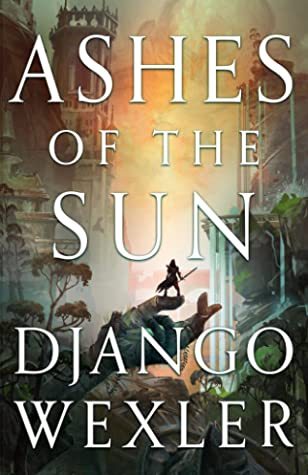
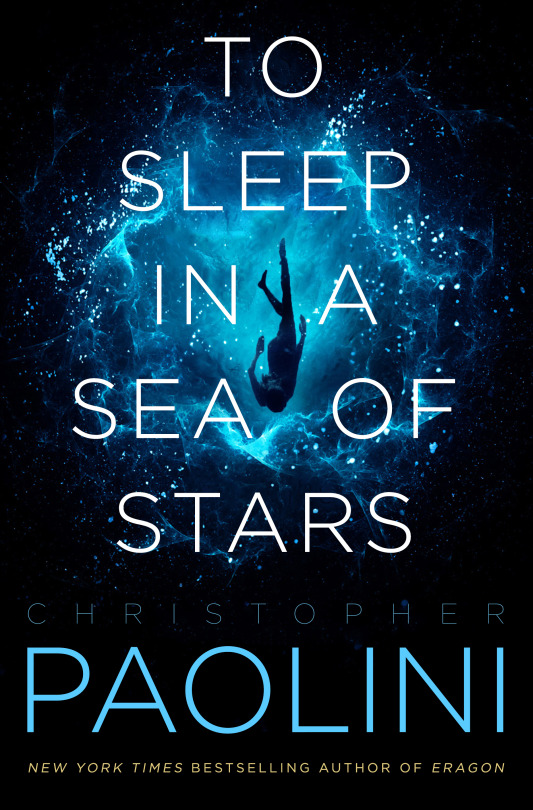

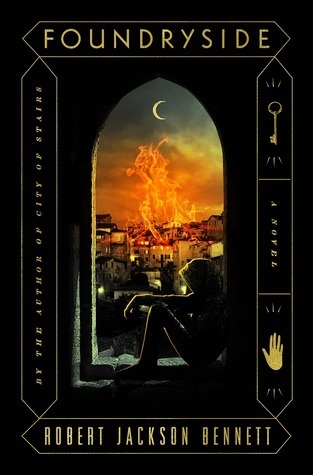
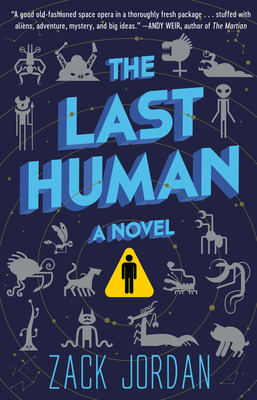
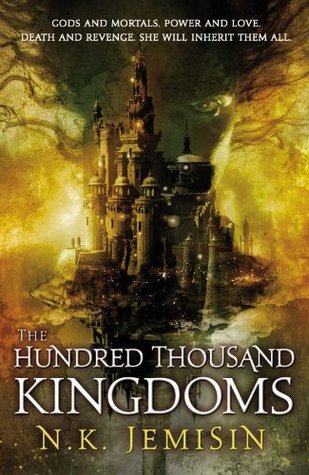
Fantasy, Drama, & World Building: book recs
Ashes of the Sun by Django Wexler
Long ago, a magical war destroyed an empire, and a new one was built in its ashes. But still the old grudges simmer, and two siblings will fight on opposite sides to save their world, in the start of Django Wexler’s new epic fantasy trilogy Gyre hasn't seen his beloved sister since their parents sold her to the mysterious Twilight Order. Now, twelve years after her disappearance, Gyre's sole focus is revenge, and he's willing to risk anything and anyone to claim enough power to destroy the Order. Chasing rumors of a fabled city protecting a powerful artifact, Gyre comes face-to-face with his lost sister. But she isn't who she once was. Trained to be a warrior, Maya wields magic for the Twilight Order's cause. Standing on opposite sides of a looming civil war, the two siblings will learn that not even the ties of blood will keep them from splitting the world in two.
To Sleep in a Sea of Stars by Christopher Paolini
Kira Navárez dreamed of life on new worlds. Now she's awakened a nightmare. During a routine survey mission on an uncolonized planet, Kira finds an alien relic. At first she's delighted, but elation turns to terror when the ancient dust around her begins to move. As war erupts among the stars, Kira is launched into a galaxy-spanning odyssey of discovery and transformation. First contact isn't at all what she imagined, and events push her to the very limits of what it means to be human. While Kira faces her own horrors, Earth and its colonies stand upon the brink of annihilation. Now, Kira might be humanity's greatest and final hope . . ."
Sin Eater by Megan Campisi
For the crime of stealing bread, fourteen-year-old May receives a life sentence: she must become a Sin Eater—a shunned woman, brutally marked, whose fate is to hear the final confessions of the dying, eat ritual foods symbolizing their sins as a funeral rite, and thereby shoulder their transgressions to grant their souls access to heaven. Orphaned and friendless, apprenticed to an older Sin Eater who cannot speak to her, May must make her way in a dangerous and cruel world she barely understands. When a deer heart appears on the coffin of a royal governess who did not confess to the dreadful sin it represents, the older Sin Eater refuses to eat it. She is taken to prison, tortured, and killed. To avenge her death, May must find out who placed the deer heart on the coffin and why. The Sin Eater walks among us, unseen, unheard Sins of our flesh become sins of Hers Following Her to the grave, unseen, unheard The Sin Eater Walks Among Us.
Foundryside by Robert Jackson Bennett
Sancia Grado is a thief, and a damn good one. And her latest target, a heavily guarded warehouse on Tevanne’s docks, is nothing her unique abilities can’t handle. But unbeknownst to her, Sancia’s been sent to steal an artifact of unimaginable power, an object that could revolutionize the magical technology known as scriving. The Merchant Houses who control this magic--the art of using coded commands to imbue everyday objects with sentience--have already used it to transform Tevanne into a vast, remorseless capitalist machine. But if they can unlock the artifact’s secrets, they will rewrite the world itself to suit their aims. Now someone in those Houses wants Sancia dead, and the artifact for themselves. And in the city of Tevanne, there’s nobody with the power to stop them. To have a chance at surviving—and at stopping the deadly transformation that’s under way—Sancia will have to marshal unlikely allies, learn to harness the artifact’s power for herself, and undergo her own transformation, one that will turn her into something she could never have imagined.
The Last Human by Zack Jordan
The last human in the universe is on the run from a godlike intelligence in this rip-roaring debut space opera. Sarya is the civilized galaxy's worst nightmare: a Human. Most days, Sarya doesn't feel like the most terrifying creature in the galaxy. Most days, she's got other things on her mind. Like hiding her identity among the hundreds of alien species roaming the corridors of Watertower Station. Or making sure her adoptive mother doesn't casually eviscerate one of their neighbors. Again. And most days, she can almost accept that she'll never know the truth--that she'll never know why humanity was deemed too dangerous to exist. Or whether she really is--impossibly--the lone survivor of a species destroyed a millennium ago. That is, until an encounter with a bounty hunter and a miles-long kinetic projectile leaves her life and her perspective shattered. Thrown into the universe at the helm of a stolen ship--with the dubious assistance of a rebellious spacesuit, an android death enthusiast on his sixtieth lifetime, and a ball of fluff with an IQ in the thousands--Sarya begins to uncover an impossible truth. What if humanity's death and her own existence are simply two moves in a demented cosmic game, one played out by vast alien intellects? Stranger still, what if these mad gods are offering Sarya a seat at their table--and a second chance for humanity?
The Hundred Thousand Kingdoms by N.K. Jemisin
After her mother's mysterious death, a young woman is summoned to the floating city of Sky in order to claim a royal inheritance she never knew existed in the first book in this award-winning fantasy trilogy from the NYT bestselling author of The Fifth Season. Yeine Darr is an outcast from the barbarian north. But when her mother dies under mysterious circumstances, she is summoned to the majestic city of Sky. There, to her shock, Yeine is named an heiress to the king. But the throne of the Hundred Thousand Kingdoms is not easily won, and Yeine is thrust into a vicious power struggle with cousins she never knew she had. As she fights for her life, she draws ever closer to the secrets of her mother's death and her family's bloody history. With the fate of the world hanging in the balance, Yeine will learn how perilous it can be when love and hate -- and gods and mortals -- are bound inseparably together.
#fantasy#fiction#adventure books#adult fantasy#world building#reading recs#Book Recommendations#tbr#currently reading#library#read this book#booklr#booklist#book recs#recommended reading
53 notes
·
View notes
Text
A few thoughts about the NYT OPINION piece.
1. We don’t know what questions Maureen Dowd asked Emilia.
2. We don’t know how she edited the article together. Many times when I was writing articles for a newspaper or doing interviews for radio and TV I wouldn’t edit them together in the order I asked them because the flow of the story would come to me later. I would never use every single word my sources gave me.
3. It makes sense that Emilia would think that Dany sees her “bad” decisions as being influenced by her Targaryen-ness considering every impulse she has had to put down her enemies as been decried as being similar to the Mad King™ by Tyrion. Even in the books, Dany lives in a near constant state of fear that she is turning into her father. Even Barristan cautions her against acting a certain way even though he told her he saw “no taint” in her. To me, this quote isn’t about how Emilia personally feels about Dany’s decisions, it’s how Dany might see her own decisions.
4. We get lines like this from Dowd “alluding to the fact that Daenerys’s father, the Mad King, was a demented and sadistic ruler.” She’s the one implying what she thinks Emilia means. Emilia didn’t actually say “Dany is acting just like her father, who was a sadistic ruler.” Dowd also has a gross misunderstanding about Targaryen madness in general. Were there plenty of poor Targaryen rulers? Yes. Were all of them mad? No.
5. Dowd could have easily put all of this into the perspective that we all know of. She could have explained that Dany has acted harshly against slavers, rapists, and those who had killed her allies, but she doesn’t. Not even a little bit. In this opinion piece she is painting Dany as a morally ambiguous ruler who happens to have cool dragons that could dispatch of Trump if she asked them, too.
6. Honestly, this whole opinion piece is all over the place. On one hand, Emilia talks about what the IT symbolizes and what happens to those who sit on it, then she talks about Dany’s “bad” decisions, a brief mention from Lena about Cersei, before skipping into modern politics with May and Trump. Dowd never focuses on one topic long enough to do any of it justice, and that’s a problem.
50 notes
·
View notes
Text
Adjustment Day by Chuck Palahniuk
Introduction
As a kid, I would devour books. I used to read a book every few days, and I spent so long refreshing the NYT Bestsellers List that I decided to just set it as my home page. This habit continued through high school. Any genre, any length, I wanted to read and learn everything there was to know. I loved how books moved at a pace that the author and I negotiated, instead of the wholly intractable speed of film. Sometimes, I'd spend hours rereading a line, relishing the image and rhythm the words and their pronunciations formed in my head. I wondered if the author intended for me to come back to that line, or if they simply wrote it while reaching blindly for a cup of coffee.
One of the first authors to pull me into their world, depraved and demented as it was, was Chuck Palahniuk. I read Fight Club, and I walked through life for months wondering if there was a fight club out there, literally or metaphorically, and if I would glean joy from joining. Through Palahniuk, I learned how to take an objective lens to everything, instead of arbitrarily assigning value and designating things or people as "good" and "bad." I read and reread all of Palahniuk's books, shaken as Seth turned into Manus and Tyler morphed into the narrator I had come to rely on and maybe even respect. Palahniuk let me be self-righteous only so he could dismantle me.
The truth is, Palahniuk's game has always been the same. He throws uneasy situations at you and lets them blossom into colossal shitstorms that you somehow find yourself at the eye of. His work is known for the employment of an unreliable narrator, one who's often equal parts bored and boring for the majority of the novel. So, I was especially surprised to find out his latest work, Adjustment Day, was a decentralized narrative.
Why I Hate Decentralized Narratives
Another book I read this summer was Into the Water by Paula Hawkins. Much like Palahniuk, Hawkins is known for unreliable narrators. Her previous book, Girl on the Train, captured my attention and twisted my judgments against me in the most Palahniuk-esque way I could've imagined. And she did it all without the gore and sheer shock value that accompanies Palahniuk's language. I had high hopes for Hawkins' novel, which ultimately left me unsatisfied because of its decentralized narrative.
Decentralized narratives are ones in which there are many narrators (at least 11, in Hawkins' case) of varying credibility. It's meant to provide us with the immersive experience of investigating the mystery as though we were living it -- through a series of short vignettes that inevitably reference context we don't have access to. And as readers, we're meant to wade through this mess and attempt to form loyalties and suspicions that are inevitably incorrect.
All of this is fine with me in theory. I love a good puzzle, and putting together conflicting narratives from ulteriorly motivated characters is an exciting prospect. Unfortunately, it's very hard to deliver this kind of novel.
The excitement of the style is also its downfall. The author has to maintain a careful balance across characters, placing red herrings and minor storylines with as much importance as the main plot. We're meant to have no indication from the writing alone who did what. And if we judge a character based on their past, we're bound to be wrong. However, the sad truth is that if we don't judge characters then we have very little incentive to remember who's who in the story. We also require some sense of coherence in order to follow a character's story.
About fifteen pages into Hawkins' Into the Water, I found myself pulling out a piece of paper and a pen, jotting names and bullet points down. Several hundreds of pages later, I was extremely displeased. Sure, there was a cohesive network of small tidbits that added up to a bigger story. But there were also loose ends galore -- to the extend that I found myself wondering if The Room was easier to follow (it wasn't).
I haven't seen a decentralized narrative executed properly. It does feel like the next natural step in literary evolution, from a single unreliable narrator to many.
Novel Overview
So, Palahniuk's Adjustment Day. I have to say, the novel brought up some exciting themes but ultimately fell a little flat for me, mostly due to issues with relating to characters. The ending left me especially dissatisfied, wondering why Palahniuk teed up situations primed for sharp and incisive social commentary and then didn't follow through. It really isn't his style to back off.
Parts of the novel felt clichéd, but I guess that's to be expected. We are consuming such a massive amount of criticism of different social phenomena that nothing really strikes me as surprising anymore. I've read stories about how Trump has planned his coup for decades and stories about how if only a few tiny things were different we would be in a vastly different social climate right now. Regardless, Palahniuk does his usual work of harnessing fiction to raise deeper questions about what's happening around us.
Youth Bulge
Every Palahniuk story is anchored by a simple social circumstance. Women feeling self-conscious about their appearances, men feeling inferior in comparison to their evolutionary ancestors' raw athleticism, etc. In Adjustment Day, it's all about the youth bulge, a phenomenon in developing countries where infant mortality rates plummet but fertility rates continue to skyrocket, resulting in a large number of youth.
Palahniuk focuses on male youth. He paints them with broad strokes, characterizing them as an aggressive, war-mongering group. He describes world governments in collusion with one another to construct aimless wars simply to expend these youth and occupy them. If they're not occupied, Palahniuk seems to claim, they'll run rampant and seek increasingly self-destructive ways to express masculinity.
The messiah-like Talbott character recognizes this trend and decides to harness the power of these young men. He spouts off various platitudes throughout the novel, many of which carry the ring of deep wisdom but lack nuance. The young men, proud to be part of some kind of covert movement, hang on his every word and seek to bring about Adjustment Day.
Adjustment Day
Adjustment Day is a largely circular idea. Basically, the idea is to divide the nation into three subnations: Blacktopia, Caucasia, and Gaysia. Through some increasingly contrived set of requirements, people are delegated mercilessly through these nations. As Talbott puts it, minorities only rebel when there's a majority to subvert. By placing the gays in one nation, the blacks in another, and the whites in a third, the new order will ensure that everyone exists solely in homogeneous communities and thus in eternal harmony.
But the first problem is that people are not willingly going to go into these subnations. What about interracial couples? What about young gay children being separated from their heterosexual parents? Talbott sees these as collateral damage.
To set the gears in motion, he establishes a new currency by which people can wield power in the new order. A humble list starts on the internet -- "America's Least Wanted." People nominate anonymously, and others can up- or down-vote names. As a name gained traction, the bounty on their head increased. Well, it's not literally their head -- the job is actually to slice off the person's left ear.
Preparation and Execution
The first half of the novel focuses on the preparation for this fateful day. Talbott recruits people who seek redemption -- addicts, disgruntled veterans, etc. -- and lets them start a lineage. They can recruit another man who can recruit another one and so on. The pride of the youth bulge ensures that no one recruits someone who will spill the beans too early.
Police officers and politicians are brought in on the deal, effectively making it hard to organize the state in response. The day of, the bloodbath occurs surprisingly quickly. People are slaughtered en masse, their ears sliced off and taken as tokens to establish influence in the new world order.
The Aftermath
We follow a few characters throughout the novel, seeing how they act before, during, and after Adjustment Day. In the aftermath, Palahniuk describes people forcing themselves to fit in just to maintain a semblance of their old life. An interracial couple pretends to be gay so they won't get separated into Blacktopia and Caucasia. A gay teenager enrolls himself in a glorified internment camp as he waits transfer to Gaysia.
Misfits scattered across the nations eventually stumble onto each other in some unspecified location and start anew.
What Worked
Palahniuk's language was as sharp as ever. He describes the justification for a temporary type of cash (the paper loses value in a few weeks).
Hoard food and it rots. Hoard money and you rot. Hoard power and the nation rots.
He so clearly cuts down to the core of our greatest fears about society -- that the effort we put toward a communal welfare may not ever benefit someone we care about.
Imagine there is no God. There is no Heaven or Hell. There is only your son and his son and his son, and the world you leave for them.
Palahniuk wrote about the desires of the youth bulge with passion that felt extremely familiar:
He was tired of learning history. He wanted to be it. Charlie wanted the history of the future to be him.
What Didn't Work
The decentralized narrative again made it hard to care about any of the individual characters. And although I felt some concern for the overall fate of the new order, I never really cared much about its ramifications on particular individuals. Arguably, that was where the punch of this entire story was hidden. If I could see the goodness of the overall arch but the badness on an individual level, we'd have another Fight Club situation. But I couldn't.
The horrifying descent into chaos was unsalvageable. If Palahniuk had just ended the book with Adjustment Day, I might have had a different perspective. But he continues on with this murky Reconstruction-esque tale that is neither interesting nor easy to follow. As NPR describes, Palahniuk tried to build the appeal of Fight Club into a bigger, more global movement but ultimately failed [1].
Conclusion
I still love Palahniuk. And I still let phrases from Adjustment Day roll around in my head. They don't have as much power to me though, because I can't contextualize them in any wonderfully meaningful way.
[1]: NPR article
1 note
·
View note
Text
Ronald Reagan, Our Most Demented President: a repost, plus the national debt. From ancient history: 2015.
Ronald Reagan, Our Most Demented President: a repost, plus the national debt. From ancient history: 2015.
A new analysis of Ronald Reagan’s news conferences demonstrates that he showed evidence of dementia while he was still president, in fact during his campaign for a second term. Everyone knows that Reagan wasn’t diagnosed with Alzheimer’s Disease until 1994, six years after he left the presidency. The analysis, reported in the New York Times (NYT), shows that Reagan developed changes consistent…

View On WordPress
0 notes
Photo

"Dr. William Dement, Leader in Sleep Disorder Research, Dies at 91" by BY RICHARD SANDOMIR via NYT Science https://ift.tt/3g24OQT
0 notes
Text
La ridicola inchiesta del New York Times sulle fakenews
Un’inchiesta del NYT racconta di una rete di pagine Facebook e siti politicamente vicini al Movimento 5 Stelle e alla Lega Nord legati a Putin.
La cosa è stata anche ripresa da Renzi, che alla sua Leopolda ha detto, cito TESTUALE: “Oggi è uscita la dimostrazione concreta e reale che 5Stelle e Lega escono con gli stessi codici nell’advertising sui social”
[Minuto di Silenzio]
Premessa: quando si dice “politicamente vicini a M5S” significa che con il M5S non c’entrano niente. Ne con la struttura comunicativa del M5S, ne con gli eletti, ne con i militanti dei meetup. Sono semplici simpatizzanti, che decidono di aprirsi una pagina o un sito e parlano di politica mettendo come immagine profilo il logo M5S (più o meno come faccio io, che però ho il buon gusto di non usare loghi, ma solo un avatar scemo), e che sono persone normalissime che scrivono e parlano come parlerebbe un qualunque disadattato al bar (a differenza mia, che ho una cultura immensa, ma di quelle grosse).
Com'è nata questa inchiesta? Hanno preso come spunto il dossier del renziano Stroppa, consigliere di Renzi per la Cybersicurezza, hacker che ha violato anche beppegrillo.it ed è alle dipendenze di Carrai (e questo basterebbe per capire la buona fede), responsabile della sicurezza del sito per il Sì al referendum.
L’analisi di questo tizio (che nessuno al mondo potrebbe giudicare come una fonte imparziale) è stata ripresa dal New York Times. Giusto per farvi un’idea di come stanno messi.
La sua analisi consiste nel fatto che ha trovato due siti di fakenews (che spacciano cazzate xenofobe contro i negri cattivi, la Boldrini e robe varie) uno col logo del M5S e l’altro col logo della Lega che hanno in comune parte del codice di programmazione e quella della pubblicità. Poi il New York Times ci ha messo in mezzo i russi, che di questi tempi fa sempre figo.
Piccola parentesi: se Trump avesse perso le elezioni, e per giustificarsi avesse tirato fuori un complotto Putin-Lega-M5S per manipolare la popolazione attraverso i post su Facebook, oggi stavano tutti a ridergli dietro. Ma dato che Trump ha vinto, il complottismo diventa buona cosa (basta non chiamarlo così).
Ebbene complotto! E' stato Putin. I 5 Stelle sono questo, aiuto. Alleanza con la Lega.
Poi vai a vedere, e risponde Google. Dice che non è affatto vero. Il codice della pubblicità è libero, e molti siti se lo copiano. Dice: “Qualsiasi editore che utilizza la versione self-service dei nostri prodotti può aggiungere il codice al proprio sito. Spesso vediamo siti non collegati che utilizzano gli stessi ID, quindi non è un indicatore affidabile che due siti siano connessi”.
Poi la Lega fa sapere che il motivo per cui i due sitarelli hanno lo stesso codice di programmazione... è perché il programmatore è lo stesso. E' un simpatizzante 5 stelle che probabilmente di mestiere fa il webmaster, che la Lega ha assunto per fargli i siti. E, come fanno molti, ha copiato una parte del codice di un altro suo sito.
Morale della vicenda? Abbiamo uno dei giornali più prestigiosi del mondo che ha denunciato un complotto assurdo perchè ha dato crediti alle scemenze di un demente renziano, che ha scoperto il fatto che un demente grillino ha fatto due siti dove scrive che i negri sono cattivi usando lo stesso codice per risparmiare probabilmente qualche ora di lavoro.
Insomma uno dei giornali più prestigiosi del mondo che si comporta come qualsiasi utonto incapace di capire la veridicità delle fonti delle notizie che gli arrivano sotto il naso, e che per smascherare il complotto delle fakenews racconta una fakenews. A cui tutti credono però.
6 notes
·
View notes
Text
Unfollow
I have decided that 2018 will be the year of less. In anticipation, I have just unfollowed 760 people on Twitter, leaving a handful of journals whose articles I enjoy and no - count them - no humans. The journals may yet go. I have muted everybody on my Facebook news feed. Yes: everybody. (Why not just delete Facebook? It’s too entangled in my online life. I need it to log into stuff and to make sure that big data can still track my every move like a demented stalker.) I have deleted my Linked In profile and my Internations membership. I have unsubscribed from innumerable mailing lists. So. Much. Unsubscribing. Mainly from places I never signed up to in the first place, though a few (bye bye Lenny Letter) that I meant to read, I really did. On the other hand I have actually signed up for the New York Times books and movies mail-outs, because I’m going to have to get my cultural information from somewhere, and if it’s from the NYT I’d rather do it without going to the home page first and seeing Donald Trump’s face. If he nukes somewhere I’m sure I’ll hear about it eventually.
I felt a bit guilty as I silenced everyone. Please don’t take it personally. It’s not YOU. It’s just that blanket annihilation is the only way I can figure out how to get out of this social media mess. I don’t understand why something I believe that I enjoy also leaves me feeling so gross. I’ve been trying to make sense of why I feel such a compulsion to spend so much time on social media and yet also keep wanting to quit it, in a way that I never think, say, ‘I wish I read fewer books’ or ‘I really need to force myself to cancel my New Yorker subscription’. I love my friends and want to know what they’re up to, I am entertained by the non-friends whose posts I choose to read, I enjoy the journals and sites I follow, I like posting my own clever / snarky little thoughts: it is illogical that it adds up to something that feels corrosive and exhausting, but here we are. I don’t know what the problem was, but it was a problem. I’ve tried cutting down; I’ve failed. And so it all, pretty much, had to go.
I feel strange now, sad, desperately unconnected, isolated, lonely, out of touch, a weirdo Luddite removed from the conversation, sitting alone at my Amsterdam desk wondering what everyone is talking about. Nevertheless it is, I think, healthy. If I want to know what everyone is talking about I’m going to have to talk to a person. if I want to not feel lonely, I’m going to have to talk to a person. If I want to be in touch, I’m going to have to -- well. You get the picture. Talking to people, real people, is one of my goals for 2018.
What about the blog, Marie?
Yes, I kept the blog. I’m a writer and I like writing, so I will keep this old-fashioned, barely interactive corner of the internet for when there’s something I want to write about, but I don’t expect a lot of visitors, and that’s OK. Actually, as my settings stand, it will still pop up on your Facebook and Twitter feeds, but I don’t assume that what was bothering me is bothering you. Still, if it is, you know what to do. And I look forward to seeing you in the real world.
1 note
·
View note
Text
The Life of Cameron Douglas, From Privilege to Prison and Back by BY DAVE ITZKOFF
The Life of Cameron Douglas, From Privilege to Prison and Back by BY DAVE ITZKOFF
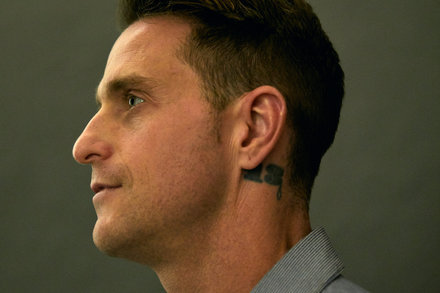
By BY DAVE ITZKOFF
In his memoir “Long Way Home,” Michael Douglas’s oldest son examines the “demented death wish” that drove him to drugs and crime, shining a light on his famous family along the way.
Published: October 19, 2019 at 10:00PM
from NYT Books https://ift.tt/31skUvm via IFTTT
View On WordPress
0 notes
Photo
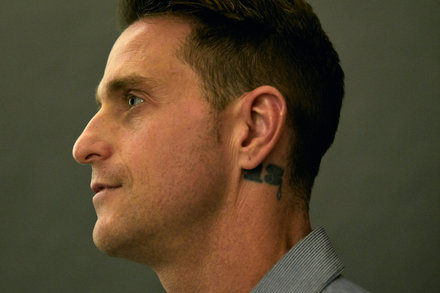
The Life of Cameron Douglas, From Privilege to Prison and Back In his memoir “Long Way Home,” Michael Douglas’s oldest son examines the “demented death wish” that drove him to drugs and crime, shining a light on his famous family along the way.. via NYT Books
0 notes